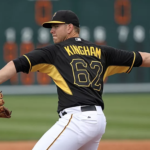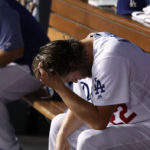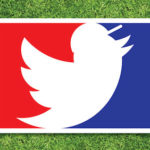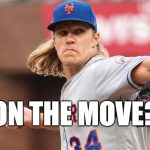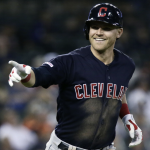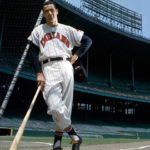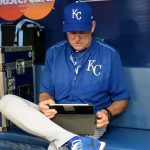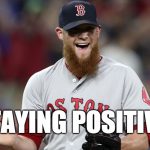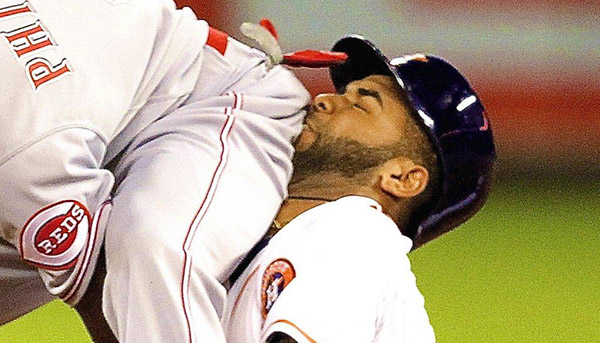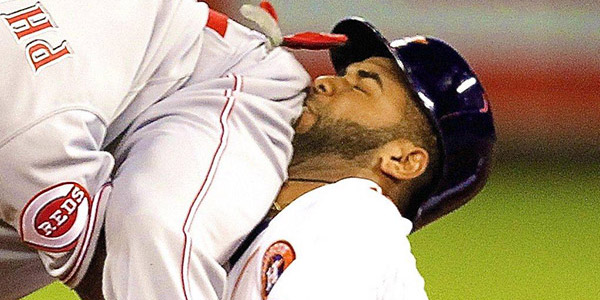Let’s Celebrate Activist Athletes For Their Positive Impact On Society
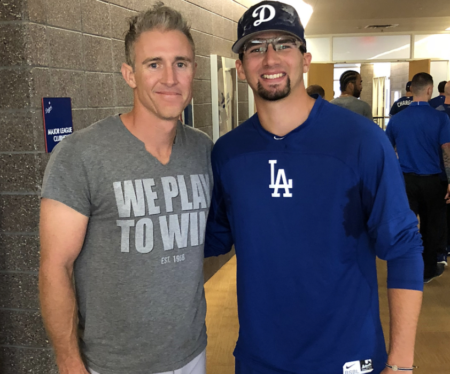 The world is such a divisive place, and the cynic in me thinks it’s always been this bad and will always be this bad. It’s a fatigue that so many people feel. Political discourse has always been able to derail an entire night, but, generally, dialogue usually starts out productive before ending with someone punching a family member.
The world is such a divisive place, and the cynic in me thinks it’s always been this bad and will always be this bad. It’s a fatigue that so many people feel. Political discourse has always been able to derail an entire night, but, generally, dialogue usually starts out productive before ending with someone punching a family member.
Today, it feels impossible to engage in productive conversation. Automatically, the person who disagrees is an idiot. There’s zero open-mindedness. Everyone suddenly turns into Danny DeDevito in “Matilda.” Society takes sides and ends up regurgitating talking points from those who espouse everything they believe. That’s how you end up with antiquated ideas like party affiliations.
You may lean one way or the other, but why do you have to subscribe to everything verbatim? I’m particularly confused because we live in a day and age where information is easily accessible. Political affiliations aren’t necessary. It’s simply another form a sport. You root for your team blindly. You boo them when they suck. But you’re still buying tickets, merchandise and defending them when fans of another team bash them. It’s an endless circle of ass-kissing. The “Human Centipede” had less ass-kissing.
So, what does this have to do with sports? Everything. Athletes aren’t expected to express thoughts, emotions or use their brains because they are superiorly athletic. How does that equate? Ronald Regan was an actor. George H. W. Bush played on Yale’s baseball team. Woodrow Wilson played center field for Davidson and Gerald Ford was an All-American center for Michigan. Should we have told them to “shut up and dribble”?
You might be thinking, “Obviously, Mike is picking on Conservatives. He’s a Liberal Millennial from the East Coast.” Wrong. The Presidents, sans Wilson, were chosen because Democrats just don’t have many Presidents who played sports in college. I chose those people because they’re the outliers who did have the ability to be athletically and politically successful. We chose those people to be our world representatives. How do we know those speaking out on issues aren’t the next to make a political impact?
Before we dive into social justice, I want you to answer two questions: Should athletes have a say in their community and on a larger stage? Why do you feel the way you do?
If you answered “yes,” we can move on. For those answering “no,” I want you to think back to September. While not politically charged, J.J. Watt’s community awareness following Hurricane Harvey raised more than $37 million, with over 200,000 individual donations. That’s the impact of sports. Watt is out there doing what no politician has the power to do. Having an impact that, unfortunately, no teacher, police officer or average person can. That’s the impact of sports.
Need more? How about this story from over the weekend …
Chase Utley of the Los Angeles Dodgers is getting an incredible amount of praise because of the unique story connecting him with Dodgers’ prospect Devin Smeltzer. In case you missed it, Smeltzer was a battling cancer in 2006 when he had the opportunity to meet and speak with Utley. Smeltzer acknowledges the impact that brief encounter had on his battle with a wretched disease. Again, a non-controversial stance, but it’s that community awareness and involvement that should be celebrated. That’s why we shouldn’t chide our athletes for having a voice.
There are thousands of organizations started, run or supported by former athletes. Should we only turn to athletes facing adversity to speak on behalf of an issue? Is former MLB outfield Jim Eisenreich the only athlete able to advocate for Tourette’s Syndrome and Asperger’s because he was diagnosed? We praise guys like Edgar Martinez for his work with Muscular Dystrophy, even though he has no connection to the disease. The humanitarianism exemplified by greats like Roberto Clemente is the impact of sports and why we should encourage people to speak out. We all can agree on that, right?
Okay, so we all feel good about our athletes and their impact. Now, let’s go to an uncomfortable place for most people. Although not a baseball player, Cleveland Browns defensive end Myles Garrett, should be respected for his stance over the weekend. Currently, he’s getting crushed by everyone for his outlook on the usage of the n-word. Garett, much like the heroes above, is speaking out on what he feels is morally wrong. His take is either everyone should use the n-word or nobody should use it. Garrett is decidedly in the camp that nobody should. Yet, African-Americans are destroying him for his position. Many tweets are reminding him he’s an “ignorant” athlete. That “it’s embarrassing that (he is) a Black man” and “enabling.” The last two quotes are courtesy of Twitter handle “cat lady w high cholesterol.”
How can this happen to a guy fighting for the slur to be erased! To quote Lil Dicky on the song “White Dude,” “…explain to me why Fat Joe, and any other person of Hispanic descent is allowed to say the N-word.” It’s something I’ve seen in my life since I was in grade school. Growing up in an ethnically diverse area, and being of Puerto Rican and Italian descent, I was exposed to all types of races and outlooks. I’ve seen Puerto Rican kids drop n-bombs way more than some of the Black kids. Mind-boggling.
This is another example of how the masses like to shout down anyone who doesn’t agree with a particular stance. We should be celebrating athletes’ work and voices. If you disagree, take the time to learn their point-of-view before telling them to shut their mouths.
Thank you, Garrett, for speaking out on racial unity. Thank you Chase Utley for your work in the community. As Harry Kalas once said, “Chase Utley, you ARE the man.”


